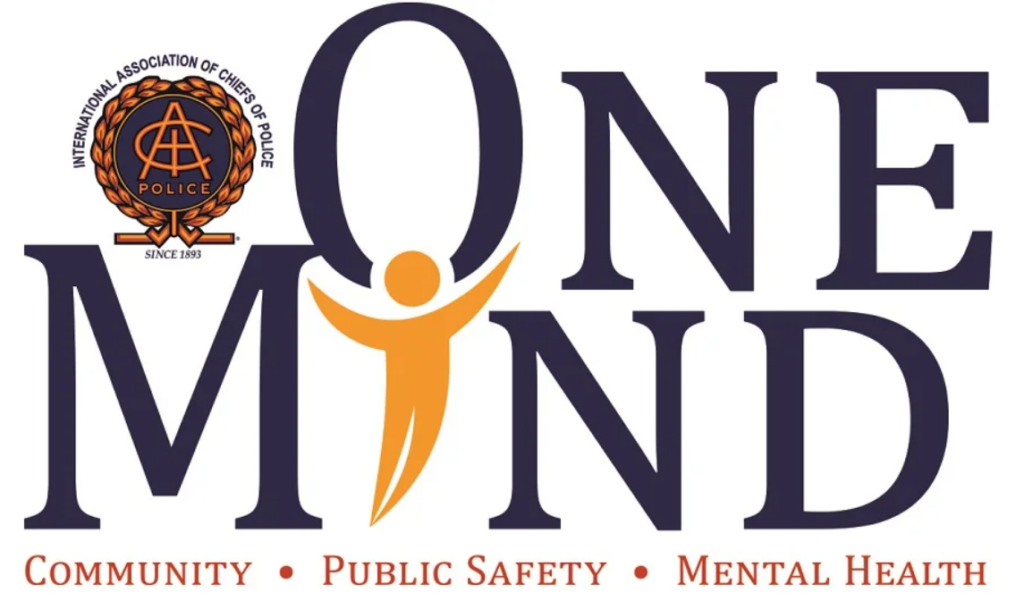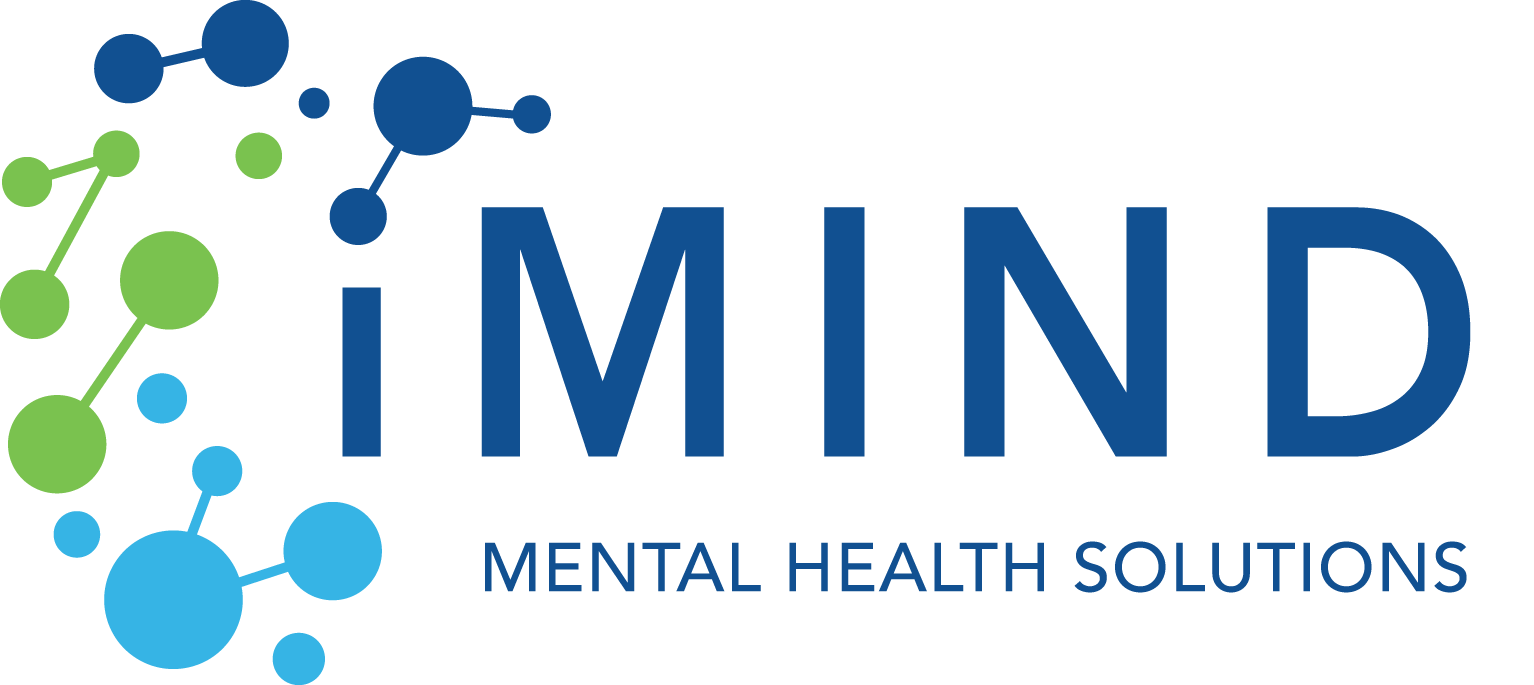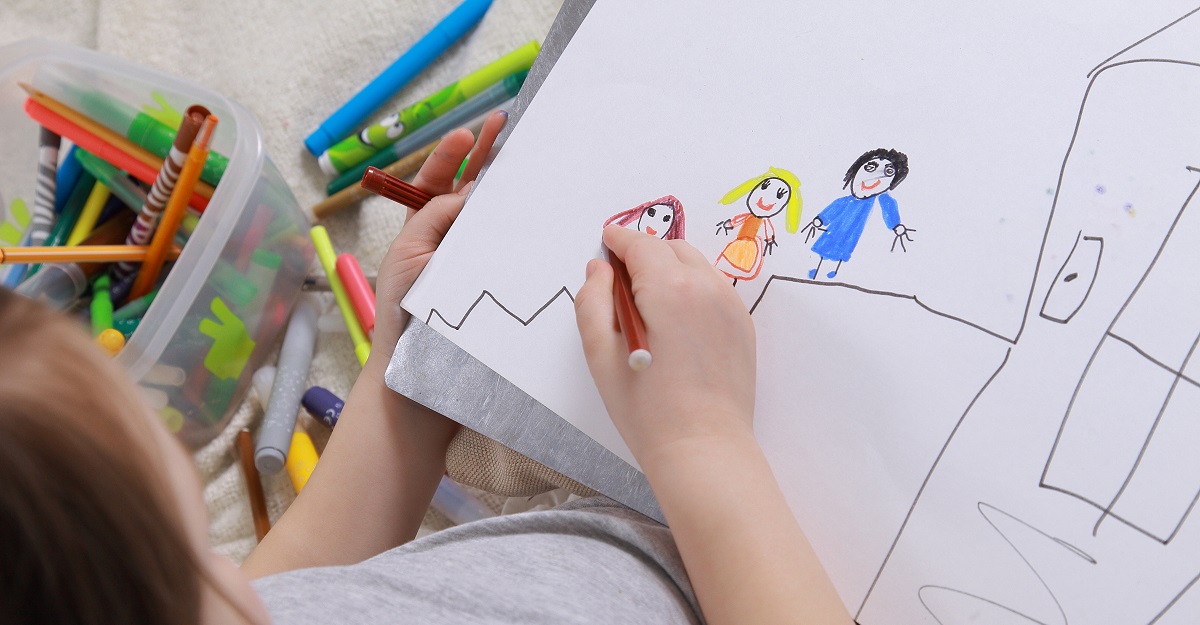What is Mental Health First Aid?
iMind Mental Health Solutions Resource

Mental health first aid is like having a first responder for mental health. Imagine someone is going through a tough time mentally, such as a sudden crisis or a worsening of their mental health. Mental health first aid steps in at this critical moment.
Also known as psychiatry first aid, mental health first aid offers immediate help for mental health issues, including serious mental health crises such as feeling extremely depressed or anxious, having thoughts of self-harm, or experiencing intense fear or panic. Just like the first aid we give for physical injuries, mental health first aid provides initial support and care to someone in distress, helping stabilize their situation and get them to additional professional help if needed.
With increasing awareness about mental health, there is a growing understanding that early and effective intervention such as mental health first aid can make a significant difference in someone’s life. It doesn’t just provide support in a crisis; it can also prevent a situation from getting worse. This makes psychiatry first aid a valuable tool in contemporary mental healthcare, empowering individuals and communities to respond effectively to mental health challenges.
How Can Mental Health First Aid Help People?
Mental health first aid is not about giving long-term therapy or making diagnoses. Instead, it is about offering immediate, compassionate support to help people feel more stable and safe. The goal is to provide comfort, understand what is needed right now, and provide connections to more help if necessary.
Psychiatry first aid can be incredibly useful in a variety of mental health situations:
- Depression: When someone is showing signs of severe sadness or hopelessness, mental health first aid can offer a listening ear, support, and referrals to ongoing professional care, if needed.
- Anxiety and Panic Attacks: In moments of intense anxiety or during a panic attack, mental health first aid employs techniques to help calm and reassure the person, guiding them through the crisis.
- Suicidal Thoughts: If someone is thinking about harming themselves, mental health first aid offers immediate support to ensure their safety and helps connect them with crisis intervention services.
- Trauma: After a traumatic event, psychiatry first aid can help people process their immediate emotions and start the journey to recovery.
- Substance Abuse: In cases of substance abuse or relapse, psychiatry first aid can offer support and direct the individual to appropriate addiction resources.
In all these situations, the role of mental health first aid is to be a stabilizing presence, offer comfort and guidance, and prevent the situation from escalating. It is a vital first step on the way to healing and longer-term mental health support.
The Goals of Mental Health First Aid
“August 23, 2011, is a day that I will never forget. It was the day my brother took his life by suicide. After battling depression for several years, it seemed to consume him on that Tuesday and we lost him forever…
The day he ended his life, his worried sister had not heard from her brother. I called him and could sense that he was sad and had been crying. I asked him where he was and he told me it didn’t matter. I knew something was wrong. I decided to go to his house, hoping that he would be there. The 10-minute drive seemed to take hours.
I kept talking to him to try to keep a conversation going. Then, all of a sudden, I lost contact with him and the phone went silent. I panicked and called his neighbors and asked them to please hurry and check on him.
Unfortunately, I was a few minutes too late. Walking in to find my brother was one of the worst days of my life. To this day, there are still feelings of guilt – the why’s and if only’s. Why didn’t he call me that day? If only I could’ve gotten there sooner….
I work in the health care field as a registered nurse and this was something I couldn’t ignore – for my brother and for others. I learned about various mental health issues while going to nursing school, but that was more than 30 years ago. Mental health was not as widely talked about as it is today and resources to learn about it were not as readily available.”
–Julie Fritz, The Day My Whole Life Changed, Mental Health First Aid, National Council for Mental Wellbeing
Providing early intervention in mental health situations is the primary objective of psychiatry first aid. It bridges the gap between experiencing a mental health crisis and accessing professional care. This bridging process involves several key steps:
Step 1: Assess Needs and Risks
One of the first steps in psychiatry first aid is recognizing the signs of mental distress or crisis through an immediate assessment of the individual’s needs and risks. This does not necessarily involve diagnosing mental health conditions, but rather identifying what kind of help is most urgently needed. For example, if someone is at risk of harming themselves, the priority would be to ensure their safety. The assessment phase is meant to spot behavior, mood, or thought patterns that might indicate someone is struggling with their mental health. Whether it is signs of extreme sadness, anxiety, confusion, or even talk of self-harm, recognizing symptoms early is critical in providing prompt and effective assistance.
Step 2: De-Escalate Crisis Situations
In some cases, a person’s mental state can escalate quickly. One goal of mental health first aid is to de-escalate these situations, helping the individual regain a sense of control and reducing the immediate risks. This could involve techniques to manage panic attacks, anxiety, or help navigating out of a situation that might be triggering their distress.
Step 3: Provide Immediate Emotional Support
During a mental health crisis, individuals often feel overwhelmed, scared, or alone. Mental health first aid renders immediate emotional support, offering a calming presence and a listening ear. This intervention can help reduce the intensity of the crisis, making it easier for the person to think clearly and consider seeking further help.
Step 4: Provide Information and Guidance
Often, individuals in a mental health crisis and their loved ones are unsure about what steps to take. Mental health first aid provides information about resources and guides individuals on how to access professional care. This may include providing contact details for crisis hotlines, mental health providers, or emergency services.
Step 5: Prescribe Medication, If Called For
Some mental health first aid providers are able to prescribe psychiatric medication for the immediate relief of symptoms. For ongoing maintenance medication, care will need to be established with a psychiatric health professional.
Step 6: Encouragement to Seek Professional Help
A key aspect of mental health first aid is encouraging the person to seek professional mental healthcare for a more thorough assessment and treatment. Mental health first aid can help demystify the process of getting professional help and reassure the individual that seeking such help is a sign of strength, not weakness.
Step 7: Ensuring Continuity of Care
In some instances, psychiatry first aid providers can facilitate a handover to professional care. This might mean accompanying the individual to a healthcare facility, making a phone call to a mental health service on their behalf, or arranging a follow-up to ensure they have made contact with a mental healthcare provider.
By performing these roles, mental health first aid acts as a critical intermediary step, offering immediate support and guidance and paving the way for professional mental healthcare. This process helps ensure that individuals experiencing a crisis are not left alone and receive the appropriate care and support they need.
Training and Certification in Mental Health First Aid
Mental health first aid training is designed to equip individuals with the skills and knowledge needed to provide immediate and effective support to someone experiencing a mental health crisis. The training process and content typically cover several key areas.
- Understanding Mental Health and Crises: Trainees learn about various mental health conditions, including depression, anxiety, psychosis, and substance use disorders. They also learn how to recognize the signs of these conditions and understand the typical behaviors and reactions of individuals experiencing a mental health crisis.
- Communication Skills: Effective communication is vital in psychiatry first aid. Training includes lessons on how to approach and talk to someone in crisis, how to listen empathetically, and how to communicate in a non-judgmental and calming manner. This also involves learning how to ask appropriate questions and encourage the individual to express their feelings and concerns.
- Assessment of Risk: Participants are trained to assess the risk of harm, whether it be to the individual or others. This includes identifying signs of suicidal ideation, self-harm, or the potential for aggression, as well as understanding how to respond appropriately.
- Crisis Intervention Techniques: Training also includes specific strategies for intervening in various crisis situations. This might involve de-escalation techniques for someone experiencing a panic attack, strategies for supporting someone with severe anxiety, or immediate steps to take if someone expresses suicidal thoughts.
- Providing Support and Information: Trainees learn how to offer initial support and comfort, including practical help and reassurance. They also learn how to provide information about mental health resources and educate individuals on how to seek professional help.
- Ethical and Cultural Considerations: Mental health first aid training often includes lessons on ethical practices, such as respecting confidentiality and understanding boundaries. Cultural sensitivity and awareness are also key components, as they help ensure that support is provided in a manner that is respectful and appropriate to the individual’s cultural background.
- Self-Care for Providers: Importantly, mental health first aid training also addresses the need for self-care among providers. This includes understanding the potential impact of providing crisis support on one’s own mental health and learning strategies for managing this impact.
Upon completion of the training, participants typically take a test to assess their understanding and skills. Successful participants receive certification, indicating they have developed the competencies needed to provide effective mental health first aid. This certification not only serves as a recognition of their skills, but also as an assurance to those they might support in the future.
Why is Mental Health First Aid Certification Important?
Certification in mental health first aid is important for several reasons:
- Validation of Skills: Certification confirms that an individual has undergone the necessary training and has acquired the skills to provide effective mental health first aid. This assures both the individual and those they help that they are equipped to handle mental health crises appropriately.
- Quality Assurance: It ensures a standardized level of knowledge and competence among those providing mental health first aid, which is critical for maintaining the quality and consistency of mental health support provided in crisis situations.
- Increased Awareness and Response Capacity: Having certified individuals in various settings such as workplaces, schools, community streets and venues enhances the overall capacity to identify and respond to mental health crises. This can lead to quicker intervention and potentially better outcomes for those experiencing mental health issues.
- Reducing Stigma: Trained and certified individuals can help break down the stigma associated with mental health issues. Their presence and the support they provide can foster a more open and supportive environment for discussing and addressing mental health concerns.
- Community Impact: In community settings, certified mental health providers providers can play a vital role in early intervention, offering support before professional healthcare can be accessed. This can be particularly impactful in areas with limited mental health resources.
Certification in mental health first aid not only empowers individuals to act confidently in crisis situations, but also contributes to a broader cultural shift, as it increases awareness and proactive management of mental health issues.
The Impact of Mental Health First Aid
A 2018 case study of the Charlotte-Mecklenburg Police Department in North Carolina illustrates the impact of mental health first aid training in a law enforcement setting.

Mental Health First Aid: A Case Study
Background and Implementation: With nearly 2,000 officers, the Charlotte-Mecklenburg Police Department (CMPD) is the largest police department between Washington, DC, and Atlanta, Georgia. In 2016, the CMPD made mental health first aid training mandatory for all officers. Approximately 90 percent of the force was trained within a year.
Objective and Need for Mental Health First Aid: The training was introduced in response to increasing interactions between police officers and individuals with mental illness. Assistant Chief Veronica “Vicki” Foster emphasized the need for officers to have the expertise needed to interact appropriately with mentally ill people. Mental health first aid was chosen for its scalability and effectiveness, given the size of the force and the limitations of providing intensive crisis intervention training (CIT) to all officers.
Community Impact and Officer Training: Not only was the training implemented to equip officers to handle mental health situations, but also to lend credibility to their actions in the community’s eyes. Almost all CMPD officers received mental health first aid training, and it is now included in the curriculum for new officers at the police academy. The training is conducted by Mental Health America of Central Carolinas, and CMPD contributes to the cost of course manuals.
Real-Life Application and Benefits: A notable incident highlighted by Lt. Christian Wagner involved Officer Tim Purdy, who used his mental health first aid skills to de-escalate a situation involving an individual with autism:
“CMPD made national news a couple of years ago when Officer Tim Purdy encountered an individual living with autism who was resisting his colleagues’ attempts to restrain him,” Wagner stated. “Purdy was able to calm him down and de-escalate the situation, thus potentially avoiding much worse consequences.”
This instance, which garnered national attention for mental health first aid, underscored the practical benefits of the training in preventing potentially dangerous outcomes.

Future Plans and National Influence
CMPD plans to continue the training, looking to develop systems for officers to connect individuals with mental health issues to longer-term care. The impact of mental health first aid at CMPD has influenced other police departments across the country as well. Over 330 agencies have pledged to provide similar training as part of the International Association of Chiefs of Police’s One Mind Campaign.
This case study – and many others like it – demonstrate the significant role of mental health first aid in enhancing the ability of law enforcement to effectively and sensitively interact with individuals experiencing mental health issues. It also underscores the potential of mental health first aid to improve community relations in addition to crisis response.
What Are the Limitations and Challenges of Mental Health First Aid?
While psychiatric first aid offers valuable support in mental health crises, it has certain limitations and implementation challenges.
As an initial support measure, mental health first aid does not eliminate the need for traditional professional mental healthcare. It is not designed to handle complex mental health conditions or provide long-term therapy. Instead, it focuses on immediate crisis intervention and does not address underlying causes or offer comprehensive treatment for mental health issues.
The effectiveness of mental health first aid can also vary depending on the skills and experience of the those providing aid. It requires careful judgment, which may be challenging for those without substantial training or experience in mental health. Successful mental health first aid requires widespread training among various groups, including educators, law enforcement, healthcare providers, as well as the general public.
Ensuring that mental health first aid training is accessible, consistent, high-quality, and up-to-date can be challenging. It is essential that those trained in mental health first aid are equipped with current best practices at all times.
Raising awareness about the importance and role of mental health first aid is key. Overcoming stigma associated with mental health issues is also necessary to encourage people to seek and provide aid.
Finally, implementing mental health first aid programs requires resources – including funding, trainers, materials, and time. Securing these resources can be a significant hurdle, particularly in under-resourced areas.
Future Prospects and Developments in Mental Health First Aid
What does the future look like for mental health first aid? It is moving fast, and there are several trends and developments to watch.

Digital and Remote Training Platforms
With the rise of digital technology, psychiatry first aid training could expand through online platforms, making it more accessible and widespread.
Integration with Other Health Services
Future developments might see mental health first aid more closely integrated with other health and social services, ensuring a more holistic approach to mental healthcare.
Customized Modules for Diverse Groups
Mental health first aid training could evolve to include specialized modules for different groups such as adolescents, the elderly, or those in high-stress professions, addressing specific mental health challenges faced by each group.
Research and Evidence-Based Improvements
Ongoing research could lead to evidence-based improvements in mental health first aid techniques, making them even more effective as well as tailored to various mental health crises.
Integration into Broader Mental Health Policies and Educational Curriculum
Mental health first aid could become a standard part of the training for teachers, counselors, and students, fostering early intervention and awareness of mental health issues among youth.
Integration with Primary Healthcare in the Form of Routine Mental Health Screenings
Incorporating mental health first aid principles into primary healthcare settings could encourage routine mental health screenings, leading to early detection and intervention for mental health issues.
Referral Networks
Developing strong referral networks between mental health first aid providers and mental health professionals can ensure seamless transitions for individuals needing more comprehensive care.
Workplace Mental Health Programs
Businesses and organizations could integrate mental health first aid training into their employee wellness programs, promoting a mentally healthy workplace.
Public Health Campaigns, Awareness, and Stigma Reduction
Mental health first aid could become a key component of public health campaigns aimed at reducing the stigma around mental health issues. By educating the public about the importance and effectiveness of mental health first aid, more individuals might be encouraged to seek or provide support.
Community-Based Initiatives
Local communities can benefit from mental health first aid initiatives where community leaders and members are trained to support those in mental health crises, resulting in a more supportive and resilient community environment.
Inclusion in Emergency and Disaster Response Protocols
Mental health first aid training could become a standard component of emergency response training, equipping first responders with the skills to provide mental health support in the aftermath of disasters or traumatic events.
Post-Disaster Mental Health Support
Mental health first aid can play a significant role in the immediate aftermath of disasters, providing emotional and psychological support to those affected. It can also be a integral part of long-term recovery strategies.
Policy and Legislative Support
Looking to the future, if our governing bodies recognize mental health first aid as a critical component of public health strategy, they could endorse and fund training. Certain sectors, such as education, healthcare, and law enforcement, could see legislation making mental health first aid training mandatory. This would ensure widespread skills and knowledge of mental health first aid among emergency first responders.
Mental health issues are a growing concern. Helping people with their mental health should be a top priority, as mental health just as important as physical health. By embracing these future prospects and integrating mental health first aid into broader strategies, we can take a giant step toward a society that is more equipped to handle mental health challenges, promote overall wellbeing, and, most importantly, save lives.
- Charlotte-Mecklenburg Police Department. (n.d.). Mental Health First Aid.
- Mental Health First Aid. (2021, September 17). www.samhsa.gov.
- The Day My Whole Life Changed. (n.d.). Mental Health First Aid.
- What is Mental Health First Aid? (2021, December 15). News-Medical.net.
Latest News
-
Are We Overusing the Term Passive Aggressive?
Sometimes people might label behavior as passive-aggressive when it’s actually just indirect communication or avoidance of confrontation. Overusing the term can dilute its meaning and make it less effective in addressing genuinely passive-aggressive behavior.
-
Top 10 Questions About Art Therapy for Mental Health
Art therapy has recently gained recognition for its unique blend of healing therapy and personal expression. Despite its growing popularity, there seems to be some misunderstanding about what art therapy entails, who it can benefit, and how it differs from other forms of therapy.



